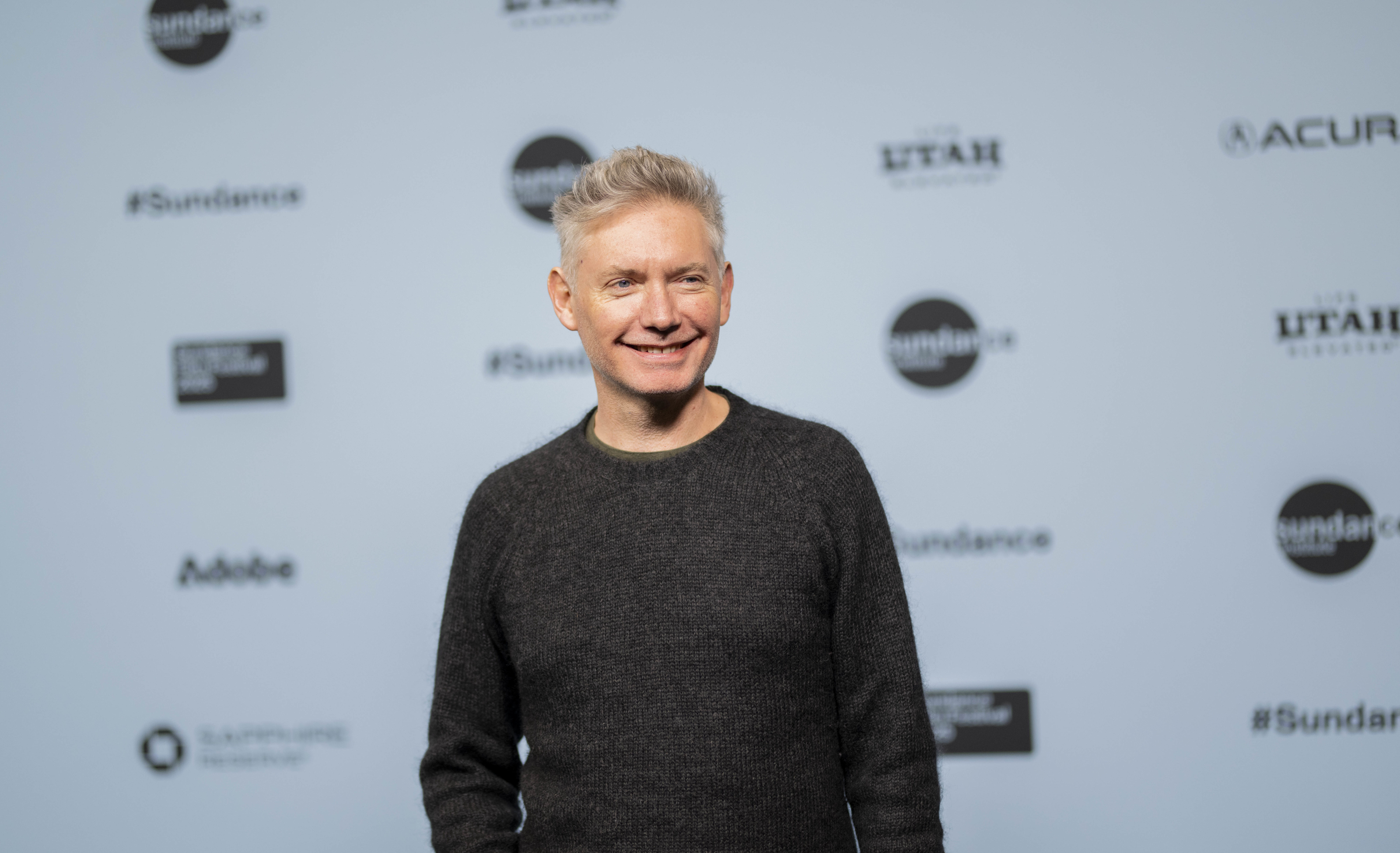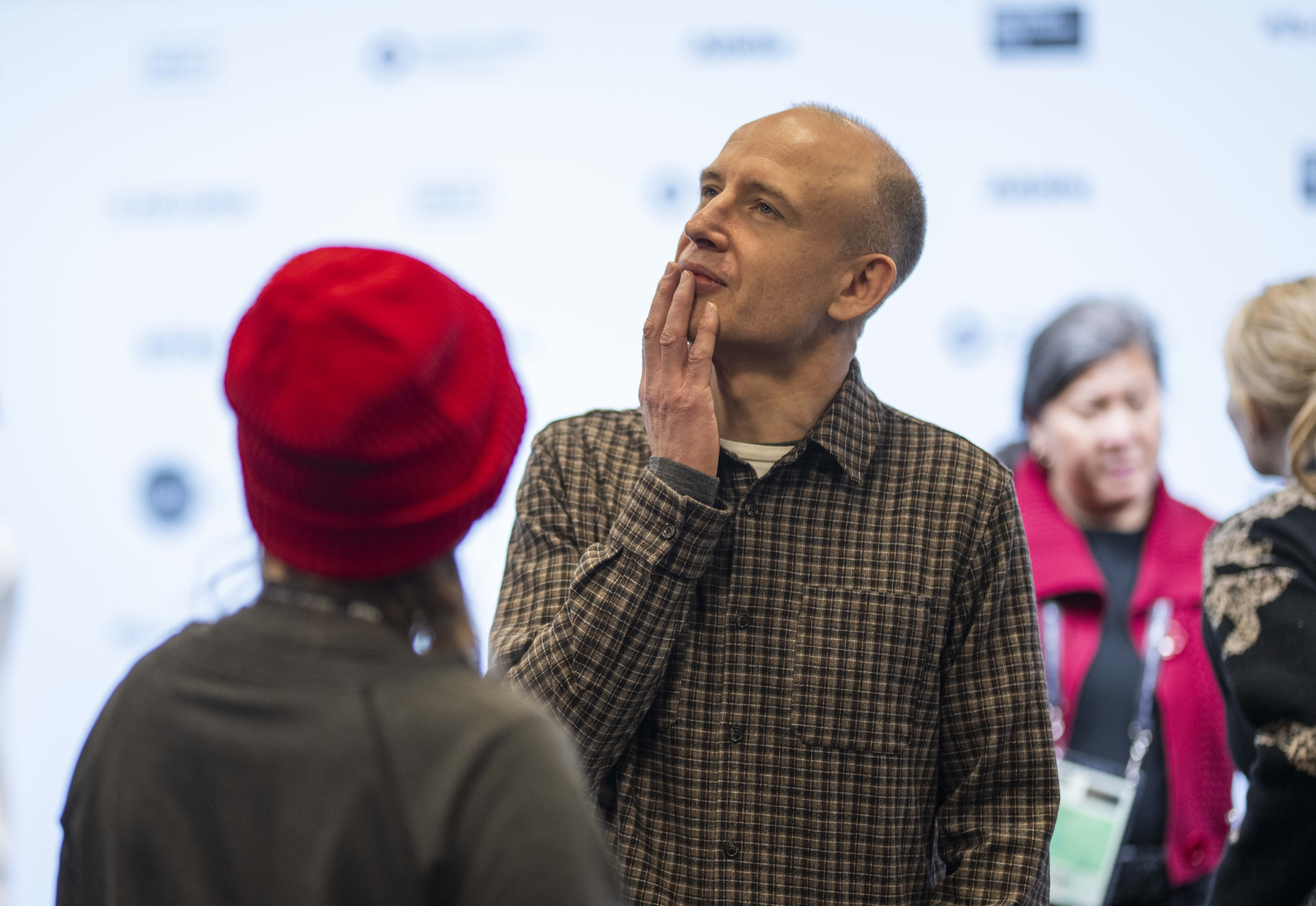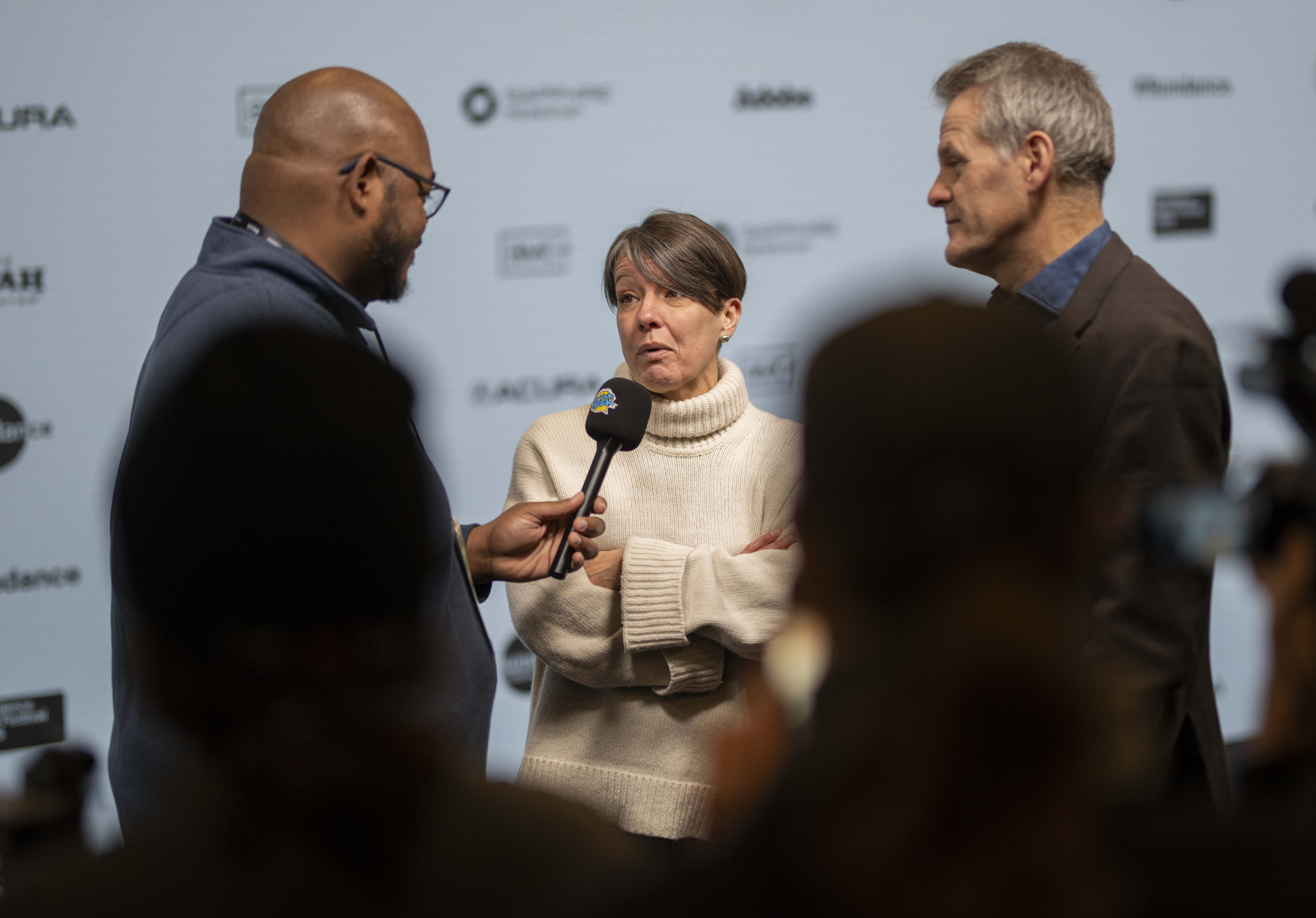Sundance 2025 Q&A: Directors, producers of “One to One: John & Yoko” reframe iconic love story
Sam Rice-Edwards, Alice Webb, Kevin Macdonald and Peter Worsley (left to right) smile for a photo. The filmmakers attended the 2025 Sundance Film Festival in celebration of their documentary, “One to One: John & Yoko.” (Zimo Li/Photo editor)
By Victoria Munck
Jan. 26, 2025 4:48 p.m.
Music’s most famous – and most scrutinized – love story is continuing to unfold on screen, five decades later.
Following a successful world premiere at the 2024 Venice Film Festival, Academy Award winner Kevin Macdonald’s “One to One: John & Yoko” made its Sundance debut in Park City, Utah. The documentary follows The Beatles’ John Lennon and his wife Yoko Ono in the early 1970s as they created music, engaged in American politics and grew in love. At the heart of the film is footage from Lennon’s 1972 “One to One” charity concert, featuring remastered audio produced by the couple’s son, Sean Ono Lennon.
Macdonald, co-director and editor Sam Rice-Edwards and producers Alice Webb and Peter Worsley spoke with the Daily Bruin’s Victoria Munck at the Sundance Film Festival about the documentary’s depiction of partnership and its continued resonance with modern crowds.
This interview has been edited for length and clarity.
Daily Bruin: I think a large part of John and Yoko’s story is the intersection of music and politics, which is a theme you also explored in your documentary “Marley.” Why do you think those two forces are so entwined, and how do you present that onscreen?
Kevin Macdonald: I think what’s interesting and what a lot of younger viewers who’ve seen this have said to me is, “Oh my god, I didn’t realize that musicians at that time got so engaged and so involved in politics.” Because I think today, people are used to saying the right thing on their little Instagram video, but actually really being on the streets, joining marches, protesting, raising money, all that stuff – not so much. So I think that engagement is really what makes people feel empowered and optimistic. I think that’s the lesson I drew from watching this.
You can call it naive at times, they can come across as quite naive. But then at the same time, you’re like, “John is 32 years old, he’s super rich, he’s one of the most famous people. He could go off and buy a desert island and live in luxury, but here he is on the streets of New York, engaging, trying to change the outcome of the election, trying to stop the Vietnam War. Similar to Bob Marley, people of that ‘70s generation musicians were engaged with politics in a way I think we should get back to.

Sam Rice-Edwards: I think, for sure, the music in this film is political, but maybe not in the most obvious way. But the film certainly shows a really big parallel between what is happening now and what happened then. It’s a very strange thing because I feel there’s a sense of arriving back at the same thing. So, has the world changed politically? You’ll have to watch it and then tell me.

DB: A lot of fans and nonfans alike are extremely confident that they understand John and Yoko’s relationship. Why do you think the documentary art form is the right way to reframe those assumptions?
KM: I think, first of all, one of the things you recognize in this film is that it’s not telling you a lot of facts, and it’s not telling you, “This is what to think about John and Yoko.” It’s very much a film that presents all of this incredible, massive material – home movies, recorded phone calls, bits of footage from interviews – and, in a way, you can choose your own narrative. You get a sense of who they are as people.
And you make an emotional connection, particularly with Yoko, which I think people have struggled to have – I think it’s rooted in racism towards her. There’s this sense of, “Oh god, she couldn’t sing, she ruined The Beatles.” And at the end of this film, we do this thing where it becomes from Yoko’s perspective, and it becomes about what that was like for her. So I think even people who feel they know The Beatles – they may know all the facts, but they will get a clearer, different sense of who they are as characters.

DB: Film is very commonly understood as a visual medium, but sound also plays an integral role, especially in a musical project like this. How do you think Sean’s remastered concert audio in the documentary helps tell his parents’ story?
Peter Worsley: What’s really interesting is when you watch the concert film, the concert itself, you see the intimate musical relationship between John and Yoko. You see John will be glancing over at Yoko when he’s performing, and when Yoko’s singing her songs, she’s looking at him. What Sean is brilliant at bringing out is enabling you to hear that in the sound. It’s a real collaboration between the two of them, particularly on her music, but also on his, and I think a lot of what Sean is doing is getting that back and creating sound that has a real excitement and energy to it.
To be honest, when the concert was originally recorded, I’m not going into the state of the guys who recorded it, but the sound was not great. It’s only with current techniques that Sean was able to separate the different layers of the sound and create something much more impactful.
Alice Webb: It’s something that will stand the test of time, it’s exactly that. If you heard the original music, you would absolutely place it in its time. We believe now what Sean has done really elevates this, and it will be timeless.
